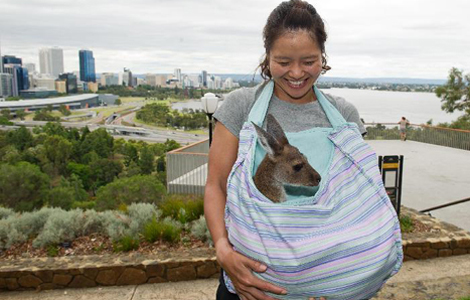Bank to see you through the twilight years
Updated: 2012-01-04 08:37
By Chen Xin, He Dan and Zheng Jinran (China Daily)
|
|||||||||||
BEIJING - Reverse mortgage might be a smart choice for the Chinese to ensure greater financial security in their old age, but would have to be carried out widely to achieve a desirable effect.
Old people can get funds by renting or selling houses they do not use, or mortgaging their property to financial institutions to receive monthly payments over a specified term or until they are alive. The bank to which the property is mortgaged continues to pay the loan until the house has been fully paid for or the owner dies. And then the house could be put on sale.
As the first generation of parents affected by the family planning policy (introduced in 1970s) gets older, a young couple has to support two sets of elderly parents, and sometimes grandparents as well. Previously, the responsibility would be shared between siblings.
|
 |
Reverse mortgage, which might help take the load of the backs of adults with elderly parents, is still to catch on in China.
At the end of 2010, China registered a population of 178 million people who were 60 or older. The Ministry of Civil Affairs forecasts that in 2020 the number would be 243 million, accounting for 18 percent of the population.
Cheng Haoye, a market researcher at Beijing-based 5i5j Real Estate Service Company, said while it's common for senior homeowners to lease their extra houses or rooms to tenants to collect money to supplement social security or pension, only a few of them were interested in reverse mortgage services.
Reverse mortgage is in its infancy in China, with just one bank and several insurance firms offering such house-for-pension programs.
In a written statement to China Daily, China Citic Bank says it targets house-owners who are 55 or older, as well as younger people who plan to collect capital for their parents by mortgaging homes.
The bank follows a policy whereby a mortgage loan is not above 60 percent of the house's value and a borrower can receive a maximum monthly payment of 20,000 yuan ($3,170) for no longer than 10 years.
"Reverse mortgage is yet to be popular in China and it would take a long time before people recognize and accept it," according to the bank.
Mixed response
Luo Chang'e, a 73-year-old retired nurse in Wuhan, Central China's Hubei province, said she wanted to leave her 80-square-meter apartment to her offspring.
"The 2,000 yuan pension I receive each month is not that much, but it's enough to cover my living expenses, so I am not thinking of mortgaging the house for more money," Luo said.
Wang Zhongjin, a Beijing resident, said she had thought about house-for-pension several years ago, even before the program was introduced in China.
"If we leave the apartment to our daughter, it will become a burden for her. She would need to take care of it regularly, traveling all the way from her home elsewhere in Beijing," the 62-year-old said.
The couple is considering mortgaging the home and moving to a nursing home when they become too old to take care of themselves. But Wang said she would take the step only after she had the details of government regulations on how reverse mortgage would work.
"I am concerned about how our home will be evaluated, and if it would be a fair evaluation," she said. "Besides, we are also concerned about whether we could get more money as payment from the bank each successive year to help us cope with the rising living costs."
Qiao Xiaochun, a population expert at Peking University, said the concept that parents ought to depend on their children was rooted in Chinese people's minds for thousands of years, as was the notion that a house was the best inheritance parents could leave their children. Qiao thought these ideas came in the way of seniors embracing the reverse mortgage service.
"Unlike some Western countries where parents do not feel obliged to give financial support to their grown-up children and inheritance taxes are high, both Chinese parents and their children attach great importance to properties and do not want to lose them," he said.
Yan Qingchun, deputy director of China National Committee on Ageing, a special coordinator under the State Council, or the Cabinet, said his organization thought reverse mortgage was a good way to address senior citizens' financial problems.
"Both scholars and related businesses are calling the government to make policies to regulate and boost development of the new industry. House-for-pension should also be deemed as part of the government's pension plan to serve public interest. Tax reduction policies and financial support from the government are also a must to make financial institutions' businesses profitable and allow borrowers to sustain the lending rate," he said.
"The measure could also take some pressure off the government in coping with an ageing population."
Introduce inheritance tax?
China should also introduce inheritance tax, which could be a good supplement to the country's national social security fund, Yan suggested.
Yan also said the government should encourage introduction of programs that allow seniors to tap into home equity and see for themselves how that might help take the load of having to look after elderly parents off their children's backs. Besides, wider introduction of reverse mortgage loan could also help develop a new industry that could be conducive to economic growth and employment promotion, he added.
In Beijing's 12th Five-Year Plan (2011-2015), banks and private insurance companies have been encouraged to introduce reverse mortgage programs for senior citizens.
Fang Jiake, deputy director of Hetong Senior Citizens' Welfare Association, a non-government organization in Tianjin, believes that the house-for-pension model is not suitable for China. Fang argued that banks would consider accepting mortgage on property only when real estate was going through a boom.
He predicts a nosedive in housing prices in the next 10 years, as the population between 25 and 34, the age group most prospective home buyers in China belong to, would decrease by around 30 percent in 2025, compared to the figures in 2015.
"Housing prices will plummet then as the supply would exceed demand," Fang said, adding that the trend was likely to reduce the confidence of banks to expand or carry out the reverse mortgage business.
Qiao Xiaochun said, given that the government's one-child policy had caused some of the problems now being faced by an ageing population, it ought to take a bigger share of responsibility in addressing these.
"While the law stipulates that citizens are obliged to comply with the one-child policy, it misses out on the rights that people ought to be enjoying for abiding by the law," he said.
Qiao suggested that the government map out favorable policies to support the founding of more public and private nursing homes and their development.
The government could also financially subsidize older people by buying them medical and nursing services, he said.
Hot Topics
Kim Jong-il, Mengniu, train crash probe, Vaclav Havel, New Year, coast guard death, Internet security, Mekong River, Strait of Hormuz, economic work conference
Editor's Picks

|

|

|

|

|

|







